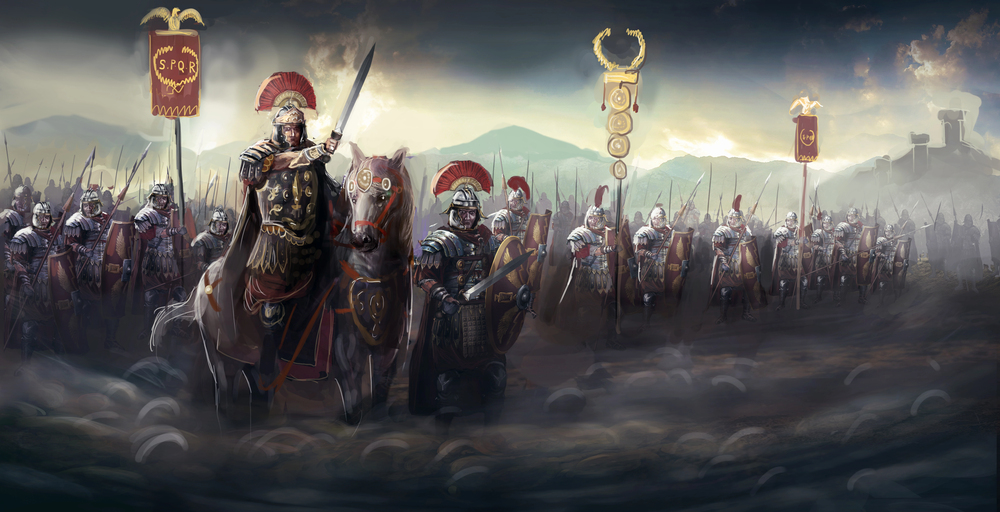Diocletian, the Roman Empire, and Forever Failing Price Controls
The Roman Empire was in trouble. During the fifty-plus years known as the Crisis of the Third Century (235-284 AD), the throne of Rome changed some 26 times, with the Roman Army engaging in a steady diet of crowning and removing claimants to the throne. These autocrats, known as “barracks emperors,” because they often came from among the ranks of the army itself, were generally disastrous in their administration of the Empire, due to a glaring lack of experience in political matters. As they were beholden to the military, much of economic policy was geared towards keeping the soldiers happy. Severus Alexander, who while not a soldier owed his throne to the Praetorian Guard, began debasing the purity of silver coinage so that he could double the pay of his soldiers, while simultaneously paying for military campaigns against the Alamanni Germanic tribes. His occupation with the Alamanni left Rome’s other borders undefended, leading to attacks and invasions from other parties such as the Sassanids, leading to his assassination by the very Praetorian Guard which had placed him into power. This, however, is of ancillary interest to our story; what is important about these invasions is that Severus devalued the currency further to pay off his invaders so that he could concentrate on the Alemanni, laying the foundation for continued inflationary policy by his successors.
By the time Diocletian came to power in 284 CE, his (non-immediate) predecessor, Aurelius, had done much to restore some semblance of order to the Empire, reunifying what had broken into three kingdoms and expelling invaders such as the Sarmatians and Vandals from Roman territory. Diocletian expanded on these actions, even going so far as to form a quartet of governing individuals, called the Tetrarchy, which co-administered the Empire with him at the head. However, the inflation continued, and the Emperor worsened it via a massive increase in military and public works spending. Making matters worse, years of increasingly poor harvests – poor, in part, because public policy forced laborers into inefficient activities such as building a new capital at Nicomedia instead of actually farming – combined with already extant inflationary pressures from monetary devaluation to cause widespread unrest, especially within the military. Remember, given that he owed his power to the goodwill of the soldiers, it was hardly in the Emperor’s best interests to have them ragged and hungry.

Diocletian Issuing his Edict on Maximum Prices to assembly of merchants and farmers
Citing the influence of “evil traders,” in 301 CE, Diocletian issued his Edict on Maximum Prices, which instituted widespread price controls on over one thousand different items, from rice, to bed linens, to the wages to be paid to craftsmen (for those interested in the full scope of the price controls, and English translation of the Edict can be found here). Diocletian preemptively placed the blame for any failures of his policy on greed, launching into invective against wicked speculators and evil profiteers who conspired to rob into beggary a helpless public. Of course, he omitted the cost of increasing the number of provinces from 40 to 105, each requiring additional military and civilian officials. This alone increased the number of high-salaried public officials fivefold. Additionally, the base pay for military personal increased sixfold, newly appointed praetorian prefects and vicarii had to be accounted for, along with their staffs, palaces befitting the tetrarchs had to be erected, and the costs of a massive increase in public works projects budgeted for. All of this was being spent against a currency which, remember, was being systematically devalued, and to a degree that the government would not accept their own currency in payment, but demanded instead goods in trade.
Predictably, the impact of the Edict was disastrous. The penalty for overcharging was death. The penalty for “hoarding” goods was also death. With the value of currency declining, and no way to mitigate this decline due to fixed prices, the only way to officially sell anything at all was at a loss. As a result, producers either refused to produce any goods or services, produced just enough to appear to comply with government policy while selling off-book on the black market, or simply resorted to barter with other producers. Shortages became the order of the day, and hungry Romans soon resorted to violence in a competition to obtain whatever was available. This was especially prevalent among the soldiers that the Edict was mostly designed to benefit, as they had little to trade except for money that no one wanted for goods that scarcely existed.
Soon, in order for some semblance of market stability to be restored, merchants, farmers and consumers simply ignored the policy; starving soldiers grateful for the return of food and clothing were hardly going to arrest the lawbreakers. Some 1200 years before the birth of Thomas Gresham, Diocletian demonstrated that bad money drives out good, and that attempting to ameliorate bad fiscal policy – whether prohibitive taxation, currency manipulation, or more contemporarily relevant, high tariff schemes – with more bad fiscal policy is never the solution. Whether in ancient Rome, the Soviet Union, or modern Western democracies with mixed economies containing a reasonably high level of free-market principles, price controls never work out to anyone’s benefit.
Tarnell Brown is an Atlanta based economist and public policy analyst.

